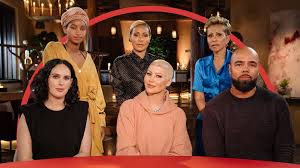By Morgan Clark
I recently watched the Red Table Talk on consent, particularly consent and the “grey area”. It was interesting to watch, and I believe watching it can spark up conversations that need to be had in our society. They start the discussion by talking about consent and how up to 80% of the women they have survey said they have had unwanted sex. This leads the hosts to explain what they call the “grey area”. Before this video, I did not truly understand how there could be a grey area. They explain the “grey area” is more of a misunderstanding between the two parties when it comes to sexual activity. They used an example of a woman asking a man to come up to a hotel room. In the woman’s mind, she’s asking because she wants to hang out more, but to the man, he thinks she’s asking him to accompany her to lead up to sex. This example I do understand, because each person can have different intentions. I think this is where the grey area is, in the difference between what each person wants from the other.
But I also feel like that is where the grey area should stop. If one party advances sexually and the other party doesn’t want to have sex, it will show. Even if that party does not vocalize it, physically they will show signs of not wanting it. This was discussed amongst the women during the Red Table Talk. They invited Rumer Willis, who was open enough to talk about her own experiences, to join the conversation. She was not vocal about not wanting sex in her experience, but said that she showed it physically. Meaning she was not reciprocating the exact motion the guy was doing. For me, in this example and many others, I feel like many men take advantage of women. Knowing that she won’t speak up about not wanting sex and ignoring obvious signs is simply taking advantage, not “the grey area.” That’s what I think they should have made clearer in the video.
I also felt like there was some victim-blaming in the beginning. Although there is a preventive measure to make one safer from sexual assault it is never the victim’s fault, even if they do not use the preventative measure. They also should have made this clearer in the discussion, even if they were not victim-blaming. One thing I did like about the conversation is the diversity of the speakers. Giving us, the audience, different perspectives on the “grey area”. They even brought in a former football player, DeAndre Levy, who is now an activist who focuses on the issue of consent and the calling out of men. He spoke about how he did not hear about consent until he was an adult. (Which is alarming!) He also talks about how he was taught to believe that a women’s body belongs to him, especially when they already have had sex with him. He was asked by the other speakers how to educate men about consent. He states “holding those in your life accountable” is the best way to teach other men about the importance of consent. Rumer brought up teaching children at an early age about consent using non-sexual content. For example, not forcing children to hug adults when they don’t want to.
The last thing I did enjoy about this conversation was the “I want, I will, and won’t“ activity brought by Michelle Hope, a reproductive justice activist. In that activity is a list of what one would do sexually, for each item you should check yes or no. This is supposed to help a person know exactly what they want sexually. I think this is a cool idea and see no cons to the list. Overall, I think this video is worth a watch. The conversation surrounding sex is so taboo that people are not comfortable speaking about any aspect of it, including consent. If we were able to get comfortable about speaking about sex I believe the idea of “grey areas” would disappear.